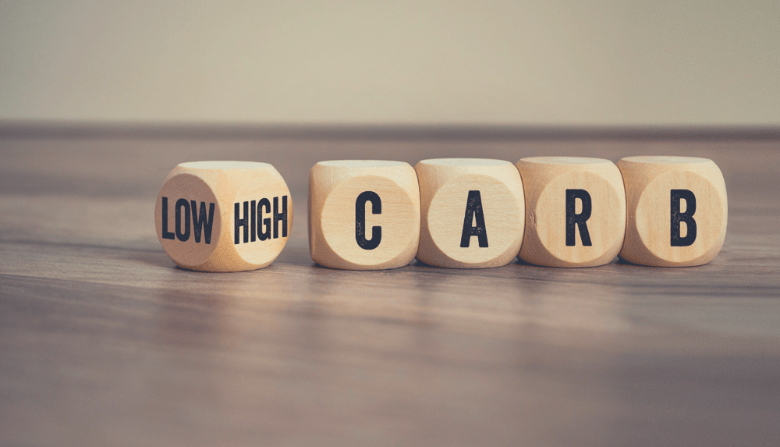If you’re into nutrition/calorie counting to lose weight, chances are you’ve heard about low-carb dieting, which is touted to help you lose weight and build muscle even quicker than traditional dieting.
Hence, it probably left you wondering, are all carbs bad?
Research conducted by Harvard School of Public Health shows that carbohydrates are not bad for you, depending on the type.
In fact, let’s look at the role they play in the body to understand why.
The Role Carbs Play in the Body
Carbohydrates are one of the main sources of nutrients found in the foods we eat and drink are converted into glucose, which is then used as energy to fuel our physical and psychological activities, such as breathing.
Therefore, they play a major role in the body.
Any glucose from carbs that are not immediately used for fuel is then stored for later use, making carbs also a good source of stored energy.
The stored glucose also helps prevent your blood sugar levels from dipping between meals.
Having sufficient glucose stores from carbs also helps keep your body from breaking your muscles down to produce energy, which often occurs when there is not enough glucose to fuel all its duties.
Hence, carbohydrates also help preserve muscle.
That being said, now you have a general idea of why carbs are important.
Carbohydrates are found in foods in 3 forms: starch, sugar, and fiber.
Starch is found in various foods, including plant-based options, like rice, corn, and potatoes, as well as bread and pasta.
Fruit, honey, unsweetened fruit juices, maple syrup, and more all contain natural sugar.
However, sugar can also be added to foods and beverages, such as soda, chocolate, breakfast cereals, yogurt, and more.
Fiber is the roughage found in the cell wall of whole foods, such as nuts, vegetables, fruits, and grains.
However, all carbs are not created equal.
In fact, there are good carbs, and there are also what’s called bad carbs, which both inherited their name from how they work in your body.
What are Good Carbs?
Good carbs are healthy sources of carbohydrates, such as vegetables, legumes, beans, fruit, vegetables, and whole grains.
They are considered good because they provide your body with various nutrients it needs to function properly and maintain overall health, including fiber, B vitamins, iron, and calcium.
They also contain fiber, which improves heart health and helps lower cholesterol levels. It also helps lower the risk of cancer.
Fiber also slows the absorption of sugar, which is especially beneficial for diabetics, thus helping prevent insulin spikes that can lead to cravings and cause you to overeat.
It is also indigestible bulk, so it fills you up quicker and keeps you full longer, so you consume fewer calories for weight loss or to maintain your weight.
Lastly, insoluble fiber, in particular, which is found in whole wheat, nuts, beans, and potatoes, quickens the flow of food through the stomach and intestines, which helps improve digestion and regularity.
What are Bad Carbs?
Bad carbs, also known as simple carbs, are starches and sugars that have been refined or processed, such as white bread, refined flour, white pasta, and more, which have been stripped of their vitamins, minerals, fiber, and more during the manufacturing process, thus they offer no nutritional value to the body. Hence, their name.
Simple carb foods also typically contain added sugar, such as ketchup, barbeque sauce, salad dressings, cookies, and cakes, which can cause your blood sugar levels to rise and then drop, leading to a decrease in energy.
Since they do not contain fiber to fill you up and keep you full, they can also cause you to eat more and gain weight.
Meanwhile, studies show that simple carbs, when eaten in excess, are stored in the body as fat, which can also lead to weight gain.

Why the Low-Carb Craze?
One main reason people flock to low-carb dieting is the bad rap associated with simple carbs.
In other words, many people don’t understand the difference between good carbs and bad carbs and how they affect the body, especially when eaten in excess.
Furthermore, protein and fat are two other nutrients found in foods and drinks that the body also uses for energy, which various studies suggest may burn more fat and calories than diets containing a combination of fat, protein, and carbs.
High protein diets have also been shown to increase energy expenditure and satiety, which also further helps promote weight loss.
Increasing your protein intake also helps you build lean muscle and maintain muscle mass, especially when strength training, which is why low-carb diets are also popular among weight lifters.
A study published by the American Diabetes Association shows that high-protein diets may also be especially beneficial for those with diabetes to help maintain blood glucose levels.
However, a low-carb diet is not recommended for the long term because it is linked to heart problems, kidney damage, lipid abnormalities, and more.
Studies show that it is okay to cut carbs during the initial stages of weight loss to help initiate significant fat and calorie burning as well as to develop ketones for long-term benefits.
Just don’t restrict your carb intake for more than a few months, after which time you can incorporate a more balanced low-calorie diet for safe results.
What is a Healthy Amount of Carbs to Eat as Part of a Low-Calorie Diet?
Ultimately how many carbs you should eat as part of a low-calorie diet will depend on your activity level, weight, and blood sugar control, which a registered dietician can help you determine.
However, in general, experts recommend as part of a 1,200 calorie diet, you aim for about 30 to 40 grams of carbs per meal, preferably from good carb sources that provide you with the proper nutrients, keep you full longer, and aid in digestion.
But avoid dropping below this amount because carbs are the body’s main source of energy. In other words, the body will first turn to glucose from carbs to fuel its functions; however, if these stores are low, it will metabolize muscle for energy, which can cause various issues, including a loss of muscle mass and more.
Exercise and Carbs
Overall, no matter your diet, it is still important to incorporate regular exercise for maximum results.
In fact, cardio helps make it possible for your body to burn more calories and fat for fuel for the greatest weight loss.
It also provides various other benefits, including improved mood, cardiovascular health, lower blood pressure, and more, which are also needed for overall satisfaction and well-being.
Meanwhile, strength training challenges your body through resistance, which helps build muscle and strengthens the bones for a more toned body and protection against osteoporosis, and more, as we age.
Reports show that muscle also helps burn more calories, even when at rest, so don’t neglect strength training as part of your fat loss goals.
As a general rule, incorporate cardio at least 5 days per week and strength training at least 2 days a week for best results.
However, you can also circuit train, which combines a mixture of both cardio and strength training all in one session, just 2 to 3 days a week, for faster results.

The Takeaway
So there are many reasons for the low-carb craze, one perhaps being the myth that carbs are bad.
But, as we just learned, only simple carbs, which come from processed and refined sugars and starches, are bad because they offer no nutrients and, when eaten in excess, can cause you to gain weight.
On the other hand, good carbs, which are found in natural, unprocessed, whole foods, still provide you with comparable results as low-carb dieting in the long run but without the long term effects
However, low-carb diets can successfully burn more stored fat than other diets, which makes them a great way to jumpstart your weight loss journey on the road to better health.



